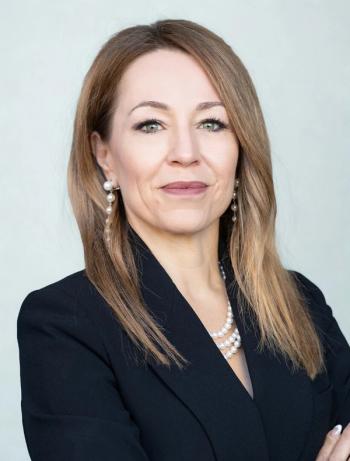
American Society for Radiation Oncology Names Vivek S. Kavadi as CEO
Vikek S. Kavadi, MD, MBA, FASTRO, succeeds Laura Thevenot, who plans to retire at the end of 2024 after leading the organization since 2002.
The American Society for Radiation Oncology (ASTRO) has named Vivek S. Kavadi MD, MBA, FASTRO, as their CEO effective November 1, 2024, according to a news release published by ASTRO.1
Kavadi will succeed Laura Thevenot, who announced earlier this year her intention to retire at the end of 2024 after leading the organization since 2002.2 Following the announcement, a nationwide executive search was conducted for her replacement.
A radiation oncologist and ASTRO member since 1994, Kavadi currently holds a position as chief radiation oncology officer for United States Oncology Network, overseeing strategy, operations, and clinical delivery service delivery for a network of 200 physicians. Previously, Kavadi was the regional medical director for Texas Oncology from 2003 to 2020, managing a 60-physician practice in the Houston region. He has maintained a clinical practice as a radiation oncologist for Texas Oncology, specializing in breast and prostate cancers.
"I am deeply honored to step into the CEO role at ASTRO to help advance our wonderful specialty,” Kavadi stated in the news release. “I do not take the challenge of leaving my current role in community cancer care to lead a national organization lightly. I recognize that I will step into the role succeeding Laura Thevenot, who has led the organization with skill and distinction for the past 22 years. I know I will be at the helm of a healthy, thriving organization, and I am committed to fostering further collaboration, scientific advancement and excellence within our specialty. I am also pleased to be able to work alongside the dedicated ASTRO staff with whom I’ve had the pleasure of working with during my time as a committee volunteer and board member. I look forward to their continued engagement to ensure we best serve our members."
Kavadi obtained his MBA from The Wharton School, his MD from Harvard Medical School and his bachelor’s in biochemistry from Rice University. He completed his radiation oncology training at the University of Texas MD Anderson Cancer Center, where he was chief resident and served on the faculty.
The 2024 ASTRO Annual Meeting will take place September 29 to October 2 in Washington, DC.
References
- Dr. Vivek S. Kavadi named CEO of the American Society for Radiation Oncology (ASTRO). News release. ASTRO. June 20, 2024. Accessed June 24, 2024.
https://tinyurl.com/3r8ubya6 - American Society for Radiation Oncology (ASTRO) CEO Laura Thevenot announces 2024 retirement. News release. ASTRO. January 8, 2024. Accessed June 24, 2024. https://tinyurl.com/mtb8dt9z
Newsletter
Stay up to date on recent advances in the multidisciplinary approach to cancer.





































